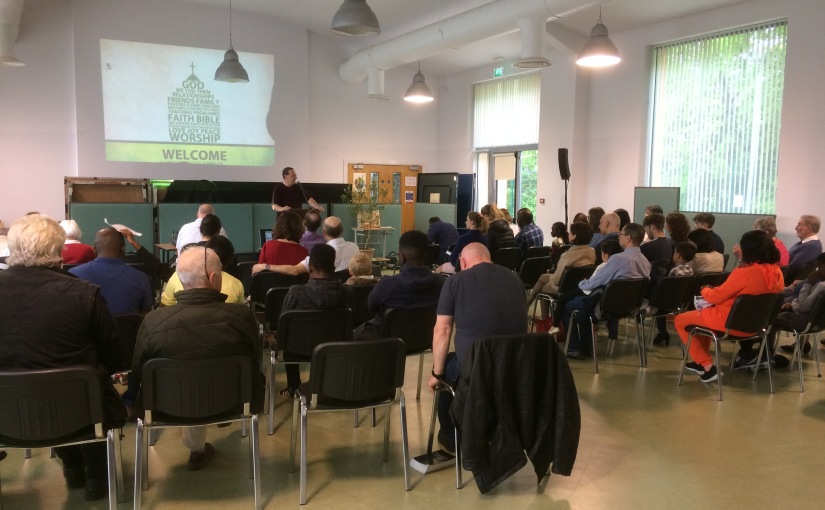Our world today is flooded with so many options in so many areas of life, from relationships to work to how to spend weekends. In a climate like this, long-term commitments can feel like little more than limitations on our freedom to choose. Then again, what good are a thousand options if we never choose one? That’s what this poem is about:
Continue reading Commitment Is A BallTag: church
Dress-Up Servants
There’s a house in Ireland, on the grounds of Cahir Castle, that is known as The Swiss Cottage. It has nothing at all to do with Switzerland, but the name sounds exotic and foreign and I’m pretty sure Switzerland doesn’t mind. It was actually designed by a famous English architect (who also designed parts of Buckingham Palace) for a powerful Irish Earl in the early 1800’s. It was made as a cottage orné, a style that imitated and idealised the homes of the poor, while still retaining the comforts of the wealthly. The Earl and his family and friends could escape from their large castle to the fanciful cottage for a picnic or party, and for a while pretend that they were like simple peasants, like the peasants who worked their large estates. They even went so far as to dress up for the part sometimes, or perhaps it’s more proper to say that they dressed down, into the clothes of the common people. Nearby, an underground tunnel meant that actual peasants could come and go from a hidden basement kitchen without being seen, until they were called upon to serve their masters, who were pretending to be like their own servants in the garden. Can you imagine being one of those servants, watching powerful lords and ladies playing dress-up in servant’s clothes, while still making you do all the actual work? If the walls of that underground kitchen could talk, I’d imagine they could repeat a few choice words. The Earl and his family may have dressed the same way as the servants, but there was still a big difference: the real servants served. The pretend servants didn’t.
Continue reading Dress-Up ServantsThe Church Is Not A TV Show
Ireland is in the midst of her second Coronavirus lockdown, where the restrictions include an order that “church services move online”. The government’s goal is to limit physical interaction wherever possible, while still keeping prioritised institutions open—primarily schools and crèches, and also certain elite sports and greyhound racing (?). Church gatherings are considered to be an unnecessary risk, and have been banned not only in the current Level 5 restrictions, but also in the lower Levels 3-4 as well. While churches do (mostly) have the ability to broadcast aspects of their services, the blunt requirement to “move online” displays a misunderstanding of what the church is, how it works, and the role it plays in society.
Continue reading The Church Is Not A TV ShowWhat If We Honoured Integrity?
It can be hard to find good role models these days. Often the people who are famous and the first to promote themselves as the ones we should be following are the last people on Earth we should be following. The world has no shortage of role models and leaders who are leading us astray.
Unfortunately, this is not only true of leaders in politics and entertainment, it is far too often true of Christian leaders as well. Celebrity culture has made itself at home in the church, and some of the people who rise to the top of Christian organisations and mega churches and TV ministries and yes, even regular local churches, get there for all the wrong reasons. They have charisma, but lack character, they have business savvy, but lack integrity. Maybe that’s why so many Christian leaders fall in scandal and shame—they never should have been there in the first place. They were good at building organisations and personal fame, but they were bad at living like a Christian. In their ministries they made disciples, but not disciples of Christ—they made disciples of themselves, teaching others to look at them and compromise for them instead of looking to Christ in trust and obedience. We need better role models for the church, but how do we find them?
Continue reading What If We Honoured Integrity?Singing Longer Than The Rest
When I was five or six, my family joined a small group who were looking to start a new church on the south side of town. I don’t remember much about the earliest stages but I do remember the years we spent meeting in a shopping centre. First it was the gym, and we had to cover the wall of mirrors with paper and I remember my Sunday school teacher telling us not to play on the weight benches. Sometimes the children got to decorate the paper, which was fun. Later, one of the buildings in the centre became available and we leased it for ourselves. Inside, we had a grand piano. I don’t remember how we got it, but we were proud of it, and proud of the lady who played it so well. We did love to sing.
Continue reading Singing Longer Than The RestI Feel It On Sundays The Most
We’re later than we intended to be, but we’re still early. It’s our turn to help set up. The children take chairs from me as I bring out the stacks, then there’s the projector and the microphone, plus I need to run through the music with the others. We won’t have much time, but we never do, and we always manage to pull it off. We joke that if our band had a name, it would be A Wing And A Prayer.
Only a few minutes before we start, and familiar faces are smiling their greetings from across the room. As the hum of conversation grows, I see my children playing with their friends in the aisles between the chairs—are they being too loud? I see a few people slip into a side room to pray before we start. Through another door, I catch the movement of busy preparations in the kitchen, teas and coffees don’t make themselves, and they’ll be needed straightaway after the service.
Continue reading I Feel It On Sundays The Most




